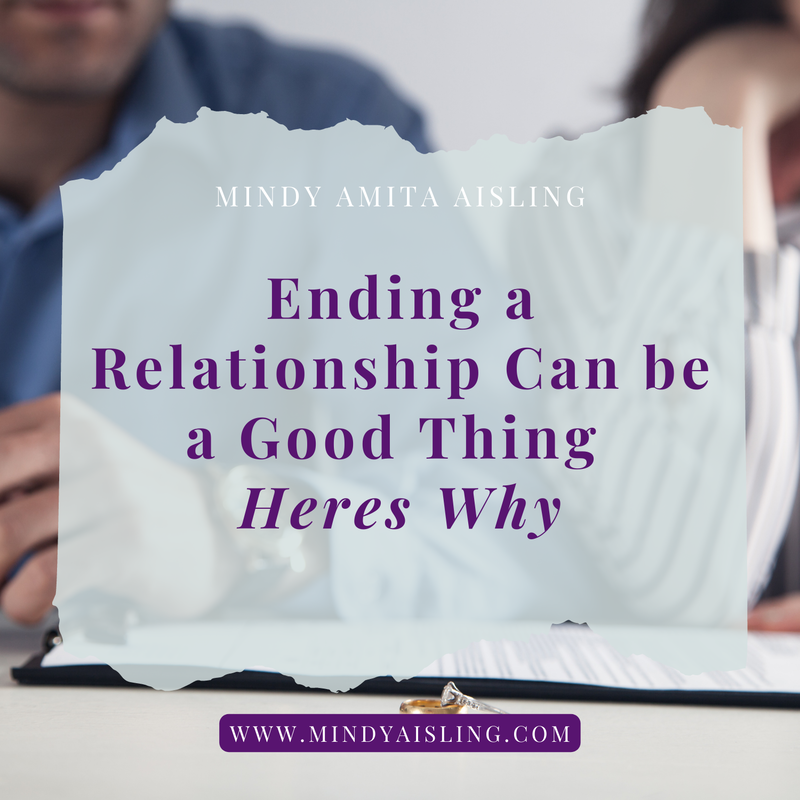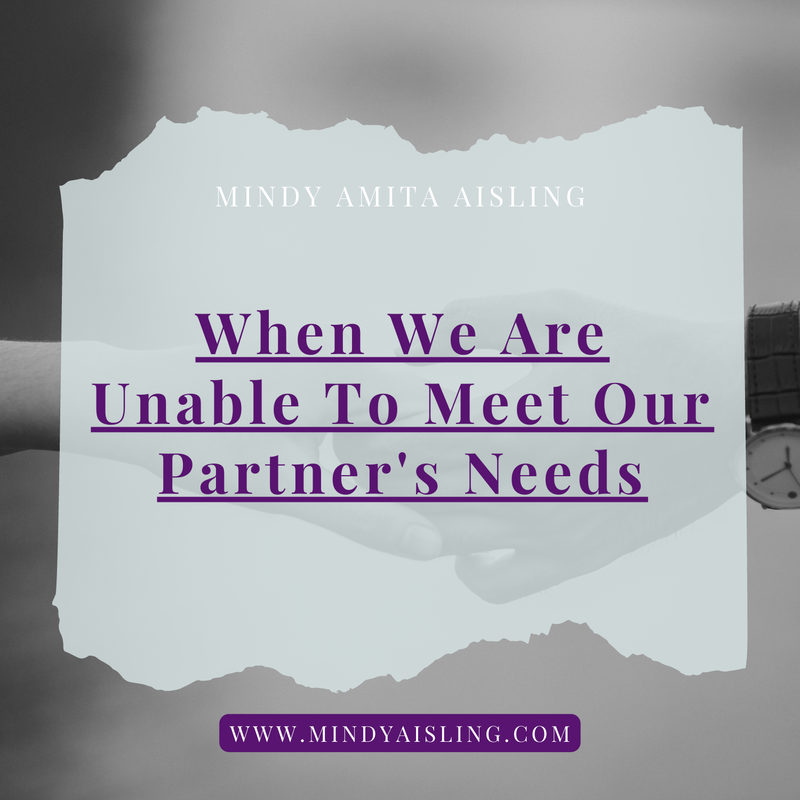0 Comments
In a world that often romanticizes the idea of eternal love and "happily ever after," the notion of ending a relationship can be met with skepticism and sadness. However, it's essential to recognize that there are circumstances when ending a relationship can actually be a positive and transformative step. In fact, staying in a relationship beyond the point of healthy uncoupling can be detrimental to the mental and emotional health of the partners (and children) in the marriage. The Christianization of our society has sold us a story that shames the naturally occurring ending of some relationships - this is not a story that you have to accept. It's okay for you to feel positive as you move forward to end your marriage or long-term relationship. While, of course, the decision is never taken lightly, here are some reasons why ending a relationship can be a good thing:
The decision to end a marriage or long-term relationship is never easy. It's a step that comes with a multitude of emotions, questions, and uncertainties. Yet, there are times when divorce or ending the relationship can be a good thing – a choice that leads to growth, healing, and the chance for both partners to embark on new journeys. Ending a relationship with love and compassion is a path that, while challenging, can pave the way for a healthier and brighter future. Recognizing the Signs of a Healthy Ending In certain situations, divorce can indeed be a positive step. When a relationship becomes toxic, marked by constant conflicts, emotional or physical abuse, or a lack of support and connection, it can erode the well-being of both partners. In these instances, choosing to end the relationship can be an act of self-care and self-preservation. Additionally, when partners have grown apart and their values, goals, or life paths have diverged significantly, it may be beneficial to part ways amicably. Rather than clinging to a relationship that no longer serves both individuals' best interests, ending it can open doors to new opportunities for personal growth, happiness, and fulfillment. Approaching the End with Love and Compassion The end of a relationship need not be marked by bitterness and resentment. Choosing to end a relationship with love and compassion can lead to a more graceful and healing separation process.
Embracing New Beginnings While the decision to divorce or end a relationship can be difficult, it also opens the door to new beginnings. It offers the opportunity for personal growth, self-discovery, and the pursuit of individual goals and aspirations. Embracing this new chapter can lead to a more fulfilled life, even in the midst of challenges. As much as we might wish otherwise, we are not omnipotent beings capable of fulfilling every need and desire our partner has. Human beings are inherently diverse, and our needs are multifaceted. These needs can range from emotional support and intimacy to practical assistance and validation. While our intentions might be pure, our limitations are a reality we must confront. It's important to remember that being unable to meet all our partner's needs does not diminish our worth or commitment to the relationship. Recognizing our limitations is a sign of self-awareness. Just as our partner is not responsible for fulfilling all our needs, it is unhealthy for us to carry the responsibility of our partner's needs (more on this here). Communication Is Key When we realize that we're unable to meet certain needs of our partners, honest and open communication becomes more crucial than ever. Suppressing these feelings of inadequacy or guilt can create a barrier in the relationship. Instead, engage in a heartfelt conversation with your partner. Express your willingness to understand and support them while acknowledging the areas where you might fall short. This dialogue is not about blaming oneself or one's partner, but rather about finding solutions together. Perhaps you can work together to identify alternative sources of support or find compromises that address both partners' needs. Remember, you are only limited by your own creativity! Transparency and vulnerability in these discussions can pave the way for a more resilient and compassionate connection. Seeking External Support When there are specific needs that you cannot fulfill due to inherent limitations or circumstances, it's wise to explore external avenues of support. This could involve seeking advice from friends, family, or professionals who specialize in the relevant areas. For instance, if your partner is dealing with a mental health challenge, a trained therapist could offer the expertise and guidance necessary to navigate that journey. If your seeking to increase your creativity regarding the meeting of needs in your relationship, coaching is a great tool and I encourage you to seek out a free first time (joint or individual) session. Cultivating Empathy and Understanding In times when you cannot meet your partner's needs, empathy and understanding become invaluable tools. First, use these tools on yourself, and take care to not put yourself down or enter into a shame cycle because of your inability to meet your partner's needs. You can also put yourself in their shoes and imagine how it might feel to have an unfulfilled need. Empathy and compassion (for self and other) are the 'grease' in a relationship - they keep it running smoothly, so use them as frequently as possible! Encourage your partner to share their feelings and thoughts openly. Validate their emotions and reassure them that their needs are valid, even if you cannot meet them entirely. Sometimes, just being a supportive presence and actively listening can make a significant positive impact. The Strength of a Resilient Relationship An inability to meet all of our partner's needs doesn't equate to failure or inadequacy. Instead, it's an opportunity for growth and strength within the relationship. Challenges are a natural part of any partnership, and how we navigate them defines the depth of our connection. By communicating openly, seeking external support, and cultivating empathy, partners can find new ways to support each other through various situations. It is also important to note that sometimes ending a relationship can be a good thing, and the most appropriate thing in a given situation. If a relationship ends, you can close that chapter with love and grace. When you and your partner are committed to a healthy "meeting of the needs", without blame or judgement, incredible things can happen. So, let go of how you think it should be, get curious, and explore how things can be when you let your partner "off the hook" for meeting your needs. |
AuthorMindy Amita AislingAuthenticity EmpowermentLife Coaching for Big-Hearted Overthinkers & Entreprenerds🐲Own Your Weird
🌎 Change Your World ⬇️ DIY Courses 👩🏻💻1:1 RemoteCoaching Fully Accredited ICF Certified Mindy Amita Aisling, is a professionally trained and board-certified leadership, authenticity, and entrepreneur coach.
Mindy exceeds all requirements set forth by the International Coaching Federation (ICF) for Master Coach certification. Mindy is also a licensed mediator, communications coach, and conflict resolution practicer. As a mediator, she has worked both in private practice and as a court appointment mediator at her local county courthouse. Through her innovative approach, she assists clients in examining their limiting beliefs, questioning their assumptions about how the world works, and releasing the notion that they are anything less than perfect. As a result, individuals who work with Mindy cultivate the ability to stand firm in their beliefs, live authentically and decisively, and discover an experience of life that is easy and graceful. In 2021, Mindy founded How to Be Human and Entreprenerd. These programs have enabled her to share her wisdom and knowledge with a broader audience in service of her vision of helping others live authentic lives This, in turn, has empowered more individuals to lead their most TRUE and COURAGEOUS lives. When she is not working, Mindy can be found playing outdoors in the beautiful Pacific Northwest, creating art, spending time with friends & family, or with her nose deep in a book. You can sign up for her newsletter here. Archives
June 2024
Categories
All
ICF Certified Life CoachAffordable Online Life Coaching |





 RSS Feed
RSS Feed
